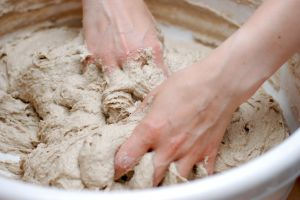Yeast intolerance symptoms; is your modern diet making you sick?
 Yeast is s a fungus which thrives on sugar. Many foods contain yeast or yeast extract, some just as a form of flavouring. Excessive yeast intake can be harmful to the body, and those with a yeast intolerance can suffer some very uncomfortable and debilitating symptoms.
Yeast is s a fungus which thrives on sugar. Many foods contain yeast or yeast extract, some just as a form of flavouring. Excessive yeast intake can be harmful to the body, and those with a yeast intolerance can suffer some very uncomfortable and debilitating symptoms.
People with certain food intolerances can develop an overgrowth of yeast, as undigested food is allowed to ferment in the gut. This can result in discomfort and fatigue.
The following symptoms can be indicative of yeast intolerance and you should consider a yeast free diet to see if your symptoms improve.
Some common symptoms of yeast intolerance are:
Excessive belching or flatulence; this may be particularly noticeable after eating sugary foods as this will combine with the yeast in the intestines and ferment to cause gas.
Feeling drowsy after eating.
Bloating or distension of the stomach.
Bad breath – coating on the tongue.
Skin conditions such as psoriasis or eczema.
Nasal congestion or rhinitis.
Mood swings.
Craving for sweet sugary foods and foods high in carbohydrates.
Heartburn and indigestion.
If you are think your may have an intolerance to yeast, then the best thing to do is to follow a yeast free diet to see if your symptoms improve. Also avoid milk, cheese and dairy products. Avoid sweetened and sugary foods, and limit your intake of carbohydrates. Cut out obvious culprits such as bread and alcohol.

You must be logged in to post a comment Login